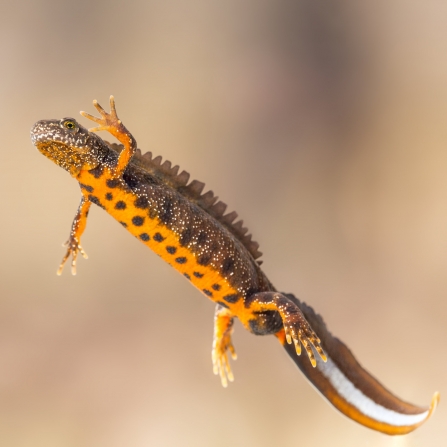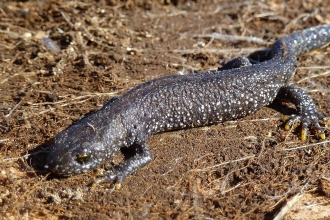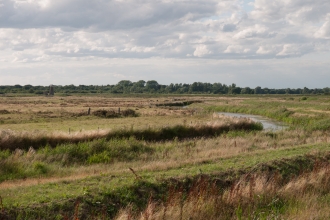The project at Fir & Pond Woods Nature Reserve near Potters Bar will restore and enhance the beautiful ancient meadow through conservation grazing by cattle and sheep as well as pond restoration. This will create ideal conditions for a huge array of wildlife, including dragonflies, bats and different birds such as reed bunting and sedge warbler.
The nature reserve, close to Potters Bar, supports a number of habitats rare in Hertfordshire including wet woodlands and lowland fens, the latter being one of the rarest in the county with less than 20 hectares left. Much of it has been lost to scrub or become degraded and species-poor due to a loss of grazing and cutting. New ponds will be created within the fen meadow to provide open-water habitat for dragonflies, damselflies and amphibians such as the legally protected great crested newts.



